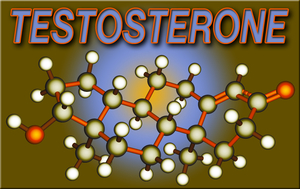Introduction to Saizen Therapy
Saizen, a recombinant human growth hormone, has been a subject of interest in the medical community for its potential in treating growth disorders among children with chronic kidney disease (CKD). This therapy aims to mitigate the growth retardation often observed in pediatric patients with CKD, a condition that can significantly impact their quality of life and developmental milestones.
Understanding Chronic Kidney Disease in Children
Chronic kidney disease in children is a debilitating condition that not only affects renal function but also leads to various systemic complications, including growth failure. The disease's progression can be influenced by numerous factors, including the underlying cause, the age of onset, and the effectiveness of the therapeutic interventions employed. Growth retardation is a common issue, with many children falling below the third percentile for height, necessitating interventions like Saizen therapy.
The Mechanism of Saizen in Growth Promotion
Saizen functions by mimicking the action of the naturally occurring growth hormone, stimulating growth in the epiphyseal plates of bones. In children with CKD, the therapy works to counteract the growth-inhibiting effects of the disease, such as malnutrition, acidosis, and renal osteodystrophy. By promoting linear growth, Saizen helps these children achieve a stature closer to their genetic potential, which is crucial for their psychological and social well-being.
Clinical Evidence Supporting Saizen Therapy
Clinical trials and observational studies have provided evidence supporting the use of Saizen in children with CKD. These studies have demonstrated that Saizen can significantly improve growth velocity in these patients. For instance, a longitudinal study showed that children receiving Saizen therapy experienced an increase in height standard deviation scores compared to those who did not receive the treatment. This improvement in growth is a critical outcome, as it can enhance the child's self-esteem and overall health.
Considerations and Challenges in Saizen Administration
Despite its benefits, the administration of Saizen is not without challenges. The therapy requires careful monitoring due to potential side effects such as joint and muscle pain, headaches, and in rare cases, increased intracranial pressure. Additionally, the cost of Saizen can be prohibitive for some families, necessitating a discussion about the economic implications of long-term therapy. Healthcare providers must balance the potential benefits of Saizen with these considerations, ensuring that the therapy is both safe and accessible to those who need it.
Integrating Saizen Therapy into Comprehensive CKD Care
Saizen therapy should not be viewed as a standalone treatment but rather as a component of a comprehensive care plan for children with CKD. This plan should include nutritional management, correction of metabolic abnormalities, and possibly renal replacement therapy. The integration of Saizen into this multifaceted approach can optimize outcomes, helping children with CKD lead healthier, more fulfilling lives.
Future Directions in Growth Hormone Therapy for CKD
The future of Saizen and similar therapies in the management of CKD-related growth failure is promising. Ongoing research aims to refine dosing regimens, identify predictors of response to therapy, and explore the long-term effects of growth hormone treatment on kidney function and overall health. As our understanding of the interplay between CKD and growth hormone action evolves, so too will the strategies for managing this complex condition.
Conclusion
Saizen therapy represents a significant advancement in the management of growth failure in children with chronic kidney disease. By promoting growth and improving quality of life, Saizen offers hope to families facing the challenges of CKD. As research continues to elucidate the best practices for its use, Saizen therapy will likely remain a cornerstone of pediatric CKD management, helping children reach their full potential despite the hurdles posed by their condition.
Contact Us Today For A Free Consultation

- Unveiling the Impact of Saizen on Immune Health in Men with Growth Hormone Deficiency [Last Updated On: February 22nd, 2025] [Originally Added On: February 22nd, 2025]
- Unveiling the Cardiovascular Benefits of Saizen in Growth Hormone Deficient Men [Last Updated On: February 25th, 2025] [Originally Added On: February 25th, 2025]
- Cost-Effectiveness of Saizen Therapy for Growth Disorders in American Males [Last Updated On: March 6th, 2025] [Originally Added On: March 6th, 2025]
- Unveiling the Potential of Saizen in Treating Short Stature due to SHOX Deficiency [Last Updated On: March 15th, 2025] [Originally Added On: March 15th, 2025]
- Exploring the Cost-Effectiveness of Saizen Therapy for Pediatric Growth Disorders in American Males [Last Updated On: March 16th, 2025] [Originally Added On: March 16th, 2025]
- Unveiling the Effects of Saizen on Adrenal Function in Men with Growth Hormone Deficiency [Last Updated On: March 16th, 2025] [Originally Added On: March 16th, 2025]
- Unveiling the Effects of Saizen on Sexual Function in Men with Growth Hormone Deficiency [Last Updated On: March 16th, 2025] [Originally Added On: March 16th, 2025]
- Exploring the Dual Benefits of Saizen in Pediatric Depression: Enhancing Growth and Emotional Well-being [Last Updated On: March 16th, 2025] [Originally Added On: March 16th, 2025]
- Exploring the Impact of Saizen on Bladder Function in Men with Growth Hormone Deficiency [Last Updated On: March 16th, 2025] [Originally Added On: March 16th, 2025]
- Saizen Therapy Enhances Growth and Health in American SGA Boys: Long-Term Effects [Last Updated On: March 16th, 2025] [Originally Added On: March 16th, 2025]
- Saizen Enhances Exercise Capacity in Men with Growth Hormone Deficiency [Last Updated On: March 17th, 2025] [Originally Added On: March 17th, 2025]
- Saizen: Exploring Its Anti-Aging Potential and Risks for American Males [Last Updated On: March 18th, 2025] [Originally Added On: March 18th, 2025]
- Saizen Benefits for American Males: Muscle, Bone, and Energy Enhancement [Last Updated On: March 18th, 2025] [Originally Added On: March 18th, 2025]
- Saizen's Impact on Growth in American Males with Noonan Syndrome: A Review [Last Updated On: March 19th, 2025] [Originally Added On: March 19th, 2025]
- Saizen Enhances Cognitive Function in Males with Growth Hormone Deficiency: Clinical Insights [Last Updated On: March 19th, 2025] [Originally Added On: March 19th, 2025]
- Saizen Therapy: Managing Injection Site Reactions in American Males [Last Updated On: March 20th, 2025] [Originally Added On: March 20th, 2025]
- Saizen's Role in Managing Cachexia: Benefits, Challenges, and Future Research [Last Updated On: March 21st, 2025] [Originally Added On: March 21st, 2025]
- Saizen Therapy: Enhancing Growth in Children with Intrauterine Growth Retardation [Last Updated On: March 21st, 2025] [Originally Added On: March 21st, 2025]
- Saizen Therapy for Growth in Down Syndrome Children: Benefits and Considerations for American Families [Last Updated On: March 21st, 2025] [Originally Added On: March 21st, 2025]
- Saizen's Impact on Body Composition in American Men with Growth Hormone Deficiency [Last Updated On: March 21st, 2025] [Originally Added On: March 21st, 2025]
- Saizen's Potential to Enhance Fertility in American Males with Growth Hormone Deficiency [Last Updated On: March 21st, 2025] [Originally Added On: March 21st, 2025]
- Saizen's Role in Managing Osteoporosis in American Males with Growth Hormone Deficiency [Last Updated On: March 22nd, 2025] [Originally Added On: March 22nd, 2025]
- Saizen's Impact on Sleep Patterns in American Men with Growth Hormone Deficiency [Last Updated On: March 22nd, 2025] [Originally Added On: March 22nd, 2025]
- Saizen Enhances Wound Healing in American Males with Growth Hormone Deficiency [Last Updated On: March 22nd, 2025] [Originally Added On: March 22nd, 2025]
- Saizen's Impact on Hearing in American Men with Growth Hormone Deficiency [Last Updated On: March 23rd, 2025] [Originally Added On: March 23rd, 2025]
- Saizen Enhances Skin Health in American Males with Growth Hormone Deficiency [Last Updated On: March 23rd, 2025] [Originally Added On: March 23rd, 2025]
- Saizen's Impact on Growth in Children with Juvenile Idiopathic Arthritis: A Review [Last Updated On: March 24th, 2025] [Originally Added On: March 24th, 2025]
- Saizen: A Promising Treatment for Hair Loss in Growth Hormone Deficient American Males [Last Updated On: March 24th, 2025] [Originally Added On: March 24th, 2025]
- Saizen's Impact on Dental Development in American Boys with Growth Hormone Deficiency [Last Updated On: March 24th, 2025] [Originally Added On: March 24th, 2025]
- Managing Saizen Allergic Reactions: Strategies for American Males [Last Updated On: March 24th, 2025] [Originally Added On: March 24th, 2025]
- Saizen Therapy's Impact on Growth in American Boys with Cystic Fibrosis [Last Updated On: March 24th, 2025] [Originally Added On: March 24th, 2025]
- Saizen Therapy: Enhancing Growth and Seizure Control in American Male Children with Epilepsy [Last Updated On: March 24th, 2025] [Originally Added On: March 24th, 2025]
- Saizen: Treating Growth Hormone Deficiency and Obesity in American Males [Last Updated On: March 24th, 2025] [Originally Added On: March 24th, 2025]
- Saizen Boosts Lung Function in American Males with Growth Hormone Deficiency [Last Updated On: March 25th, 2025] [Originally Added On: March 25th, 2025]
- Saizen's Role in Managing Asthma for Men with Growth Hormone Deficiency [Last Updated On: March 25th, 2025] [Originally Added On: March 25th, 2025]
- Saizen: Transforming Adult Growth Hormone Deficiency Treatment and Quality of Life [Last Updated On: March 25th, 2025] [Originally Added On: March 25th, 2025]
- Saizen Therapy: Enhancing Growth and Bleeding Control in Boys with Hemophilia [Last Updated On: March 25th, 2025] [Originally Added On: March 25th, 2025]
- Saizen's Impact on Growth in American Males with Autism Spectrum Disorders [Last Updated On: March 25th, 2025] [Originally Added On: March 25th, 2025]
- Monitoring Growth Velocity in American Males on Saizen Therapy: A Comprehensive Guide [Last Updated On: March 25th, 2025] [Originally Added On: March 25th, 2025]
- Saizen's Role in Managing Growth Hormone Deficiency and Diabetes in American Men [Last Updated On: March 25th, 2025] [Originally Added On: March 25th, 2025]
- Saizen's Impact on Mental Health in Growth Hormone Deficient American Males [Last Updated On: March 26th, 2025] [Originally Added On: March 26th, 2025]
- Saizen Therapy Enhances Growth in Children with Spinal Muscular Atrophy: A Review [Last Updated On: March 26th, 2025] [Originally Added On: March 26th, 2025]
- Saizen's Impact on Growth in American Males with Congenital Heart Disease [Last Updated On: March 26th, 2025] [Originally Added On: March 26th, 2025]
- Saizen's Impact on Gastrointestinal Health in American Males with Growth Hormone Deficiency [Last Updated On: March 27th, 2025] [Originally Added On: March 27th, 2025]
- Saizen Enhances Liver Function in American Males with Growth Hormone Deficiency [Last Updated On: March 27th, 2025] [Originally Added On: March 27th, 2025]
- Saizen's Impact on Growth in American Males with Celiac Disease: A Comprehensive Review [Last Updated On: March 27th, 2025] [Originally Added On: March 27th, 2025]
- Saizen Enhances Vision in American Men with Growth Hormone Deficiency [Last Updated On: March 27th, 2025] [Originally Added On: March 27th, 2025]
- Saizen Enhances Post-Surgical Recovery in American Males with Growth Hormone Deficiency [Last Updated On: March 27th, 2025] [Originally Added On: March 27th, 2025]
- Saizen's Impact on Thyroid Function in American Men with Growth Hormone Deficiency [Last Updated On: March 27th, 2025] [Originally Added On: March 27th, 2025]
- Saizen Therapy: Enhancing Growth and Motor Function in Children with Cerebral Palsy [Last Updated On: March 27th, 2025] [Originally Added On: March 27th, 2025]
- Saizen's Impact on Adrenal Function in American Men with Growth Hormone Deficiency [Last Updated On: March 27th, 2025] [Originally Added On: March 27th, 2025]
- Saizen's Multifaceted Benefits in Managing IBD and GHD in American Males [Last Updated On: March 27th, 2025] [Originally Added On: March 27th, 2025]
- Saizen's Impact on Pubertal Development in American Males with Growth Hormone Deficiency [Last Updated On: March 28th, 2025] [Originally Added On: March 28th, 2025]
- Saizen's Impact on Kidney Function in American Males with Growth Hormone Deficiency [Last Updated On: March 28th, 2025] [Originally Added On: March 28th, 2025]
- Saizen's Impact on Growth in Children with Sickle Cell Disease: Insights for American Males [Last Updated On: March 28th, 2025] [Originally Added On: March 28th, 2025]
- Saizen's Role in Managing Anemia in American Males with Growth Hormone Deficiency [Last Updated On: March 29th, 2025] [Originally Added On: March 29th, 2025]
- Saizen Enhances Bladder Function in American Men with Growth Hormone Deficiency [Last Updated On: March 29th, 2025] [Originally Added On: March 29th, 2025]
- Saizen Therapy Enhances Pancreatic Function in American Men with GHD: Current Insights [Last Updated On: March 29th, 2025] [Originally Added On: March 29th, 2025]
- Saizen Therapy Enhances Growth in American Boys with Type 1 Diabetes [Last Updated On: March 29th, 2025] [Originally Added On: March 29th, 2025]
- Saizen's Impact on Reproductive Health in American Men with Growth Hormone Deficiency [Last Updated On: March 31st, 2025] [Originally Added On: March 31st, 2025]
- Saizen's Impact on Growth and Health in Children with PCOS: A Review [Last Updated On: April 3rd, 2025] [Originally Added On: April 3rd, 2025]
- Saizen's Role in Managing Endometriosis and GHD in American Males [Last Updated On: April 4th, 2025] [Originally Added On: April 4th, 2025]
- Saizen's Impact on Prostate Health in Men with Growth Hormone Deficiency [Last Updated On: April 4th, 2025] [Originally Added On: April 4th, 2025]
- Saizen's Impact on Menstrual Cycles in American Women with Growth Hormone Deficiency [Last Updated On: April 6th, 2025] [Originally Added On: April 6th, 2025]
- Saizen: Treating Growth Hormone Deficiency and Delayed Puberty in American Males [Last Updated On: April 7th, 2025] [Originally Added On: April 7th, 2025]
- Saizen: Enhancing Growth in Children with Precocious Puberty [Last Updated On: April 7th, 2025] [Originally Added On: April 7th, 2025]
- Saizen Treatment and Breast Development in Male Growth Hormone Deficiency Patients [Last Updated On: April 7th, 2025] [Originally Added On: April 7th, 2025]
- Saizen Therapy Enhances Growth and Hormonal Balance in Boys with Testicular Disorders [Last Updated On: April 8th, 2025] [Originally Added On: April 8th, 2025]
- Saizen's Impact on Sexual Function in American Males with Growth Hormone Deficiency [Last Updated On: April 10th, 2025] [Originally Added On: April 10th, 2025]
- Saizen's Potential Benefits for American Males with GHD and ASD: A Comprehensive Review [Last Updated On: April 10th, 2025] [Originally Added On: April 10th, 2025]
- Saizen Enhances Mood and Quality of Life in Men with Growth Hormone Deficiency [Last Updated On: April 10th, 2025] [Originally Added On: April 10th, 2025]
- Saizen Therapy Enhances Growth and Psychological Health in American Male Children with Gender Dysphoria [Last Updated On: April 11th, 2025] [Originally Added On: April 11th, 2025]
- Saizen Reduces Anxiety in Men with Growth Hormone Deficiency: Recent Studies Show [Last Updated On: April 12th, 2025] [Originally Added On: April 12th, 2025]
- Saizen's Potential Benefits for Growth and Depression in American Children: A Review [Last Updated On: April 12th, 2025] [Originally Added On: April 12th, 2025]
- Saizen's Role in Treating GHD and ADHD in American Males: A Comprehensive Overview [Last Updated On: April 14th, 2025] [Originally Added On: April 14th, 2025]
- Saizen Enhances Attention in American Males with Growth Hormone Deficiency: Clinical Insights [Last Updated On: April 16th, 2025] [Originally Added On: April 16th, 2025]
- Saizen Enhances Memory in Males with Growth Hormone Deficiency: Clinical Insights [Last Updated On: April 16th, 2025] [Originally Added On: April 16th, 2025]
- Saizen Therapy Enhances Growth and Motor Skills in American Male Children [Last Updated On: April 17th, 2025] [Originally Added On: April 17th, 2025]
- Saizen Enhances Coordination in American Males with Growth Hormone Deficiency [Last Updated On: April 17th, 2025] [Originally Added On: April 17th, 2025]
- Saizen Enhances Balance in American Men with Growth Hormone Deficiency: A Comprehensive Review [Last Updated On: April 18th, 2025] [Originally Added On: April 18th, 2025]
Word Count: 596



















